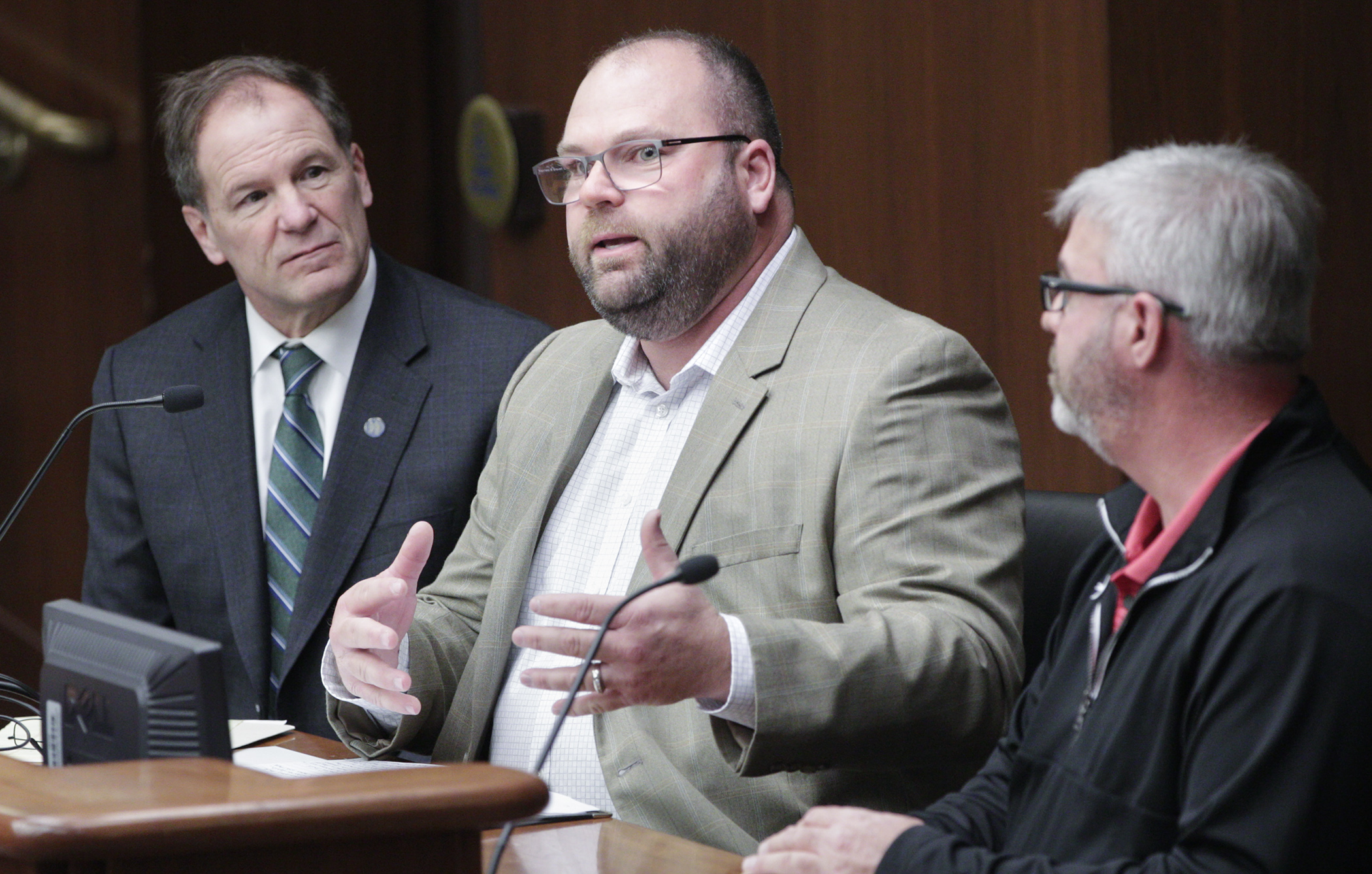Tax on trade-ins would be no more under ‘Willmar plan’

It may not have the ring of the “Paris Agreement” or the “Oslo Accords,” but “the Willmar Plan” may be a very big deal to the state’s farmers and small-business owners.
It was on Valentine’s Day that Rep. Dave Baker (R-Willmar) invited the chair of the House Taxes Committee, Rep. Paul Marquart (DFL-Dilworth), to meet with several farmers, agricultural implement dealers, accountants and Rep. Paul Anderson (R-Starbuck) at an accounting firm in Willmar. The topic of discussion was what’s been described by many as Minnesota’s most important tax issue of 2020: Section 179 expensing.
That section of federal tax code deals with accelerated depreciation. Last year, both the House and Senate passed tax bills that would bring Minnesota into full conformity with federal law, but it fell out of the final tax law in negotiations between legislative leaders and Gov. Tim Walz. The result has been tax liabilities for farmers and small businesses that are driving many to the edge of solvency.
“The Willmar Plan” would stop the bleeding.
Contained in a bill sponsored by Marquart, HF3882 would provide full retroactive conformity to Section 179 for property acquired in a like-kind exchange (think: a trade-in) by carving out that property from the state’s current five-year add-back for the federal Section 179 deduction.
Many legislators on both sides of the aisle have been emphasizing the issue as their top priority. In fact, the first bill the House Taxes Committee heard this session was another plan for Section 179 expensing.
HF3882 goes further.
“I used the example (on that earlier bill) of a person trading in a tractor for $100,000 and purchasing a new one for $200,000,” Marquart said. “Under federal law, that $100,000 from trading in the first tractor was reported as a gain. And, since we didn’t fully conform to federal law, these farmers got hit with enormous tax bills.
“What this does for those retroactive exchanges is make the treatment the same as the federal government. So you’d have the gain of $100,000, but now you’d be able to deduct the depreciation for the full $200,000 of the new tractor. So you’d have $100,000 in increased expenses, which would lower your taxes.”
The bill was laid over Thursday by the tax committee for possible omnibus bill inclusion. Its companion, SF3751, sponsored by Sen. Kent Eken (DFL-Twin Valley), awaits action by the Senate Taxes Committee.
The Department of Revenue estimates the change would lower General Fund revenues $12.6 million in this biennium, and $15.2 million in the next.
But all who testified said that the status quo is way too costly for farmers and small businesses.
“I had to mortgage a sixth-generation family farm to pay my bill in October,” said Jason Hollund, a soybean farmer from Wells.
“I traded a sprayer that was worth $200,000, and bought a new one for $500,000,” said Albert Lea farmer Kevin Poppel. “In the old system, there was no financial gain, because we had no income from that trade. The way things are today, I would have to put that $200,000 on my tax return. I didn’t make that money. How can I afford to pay taxes on money that I didn’t make?
“And there’s a trickle-down effect. If I don’t have money to spend, what happens to the Ace Hardware in town or that Case International or John Deere dealer and all of the jobs associated with that? They’ll have to make significant changes just like I have. Our state has been an agriculture state and I want to keep it that way. But this has made a much greater impact than we anticipated.”
Related Articles
Search Session Daily
Advanced Search OptionsPriority Dailies
Ways and Means Committee OKs proposed $512 million supplemental budget on party-line vote
By Mike Cook Meeting more needs or fiscal irresponsibility is one way to sum up the differences among the two parties on a supplemental spending package a year after a $72 billion state budg...
Meeting more needs or fiscal irresponsibility is one way to sum up the differences among the two parties on a supplemental spending package a year after a $72 billion state budg...
Minnesota’s projected budget surplus balloons to $3.7 billion, but fiscal pressure still looms
By Rob Hubbard Just as Minnesota has experienced a warmer winter than usual, so has the state’s budget outlook warmed over the past few months.
On Thursday, Minnesota Management and Budget...
Just as Minnesota has experienced a warmer winter than usual, so has the state’s budget outlook warmed over the past few months.
On Thursday, Minnesota Management and Budget...